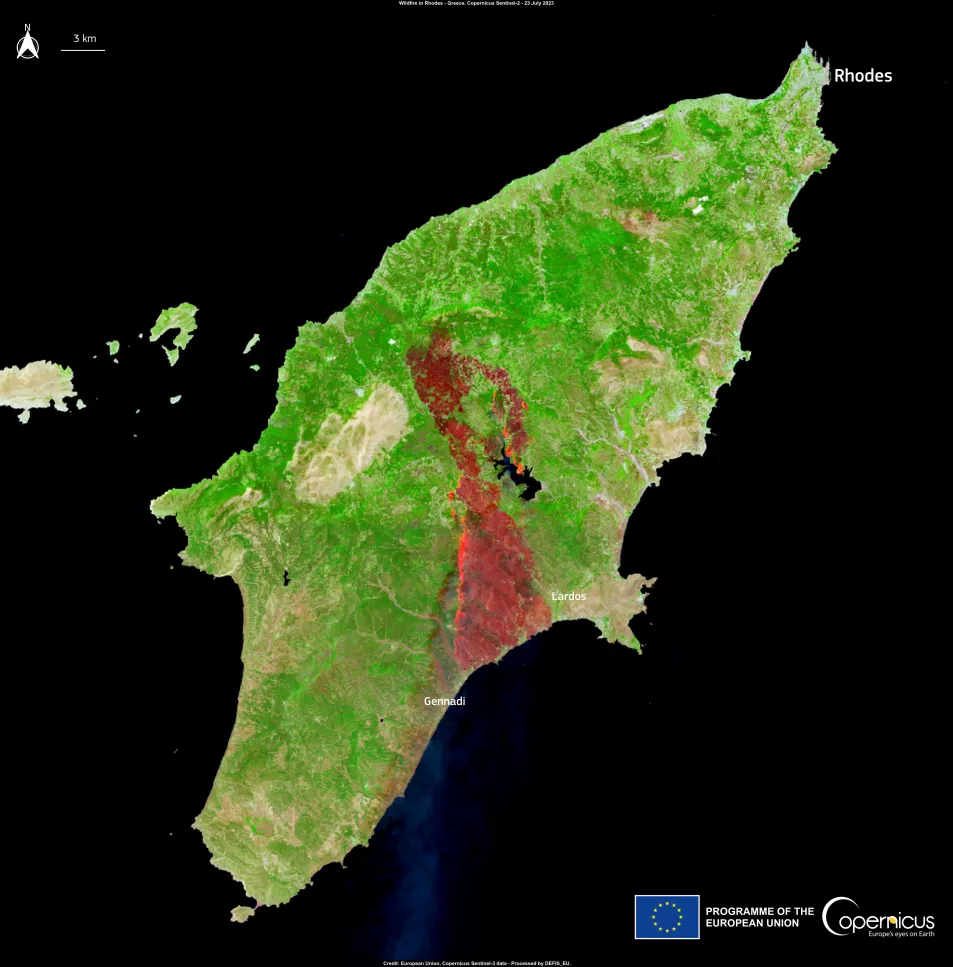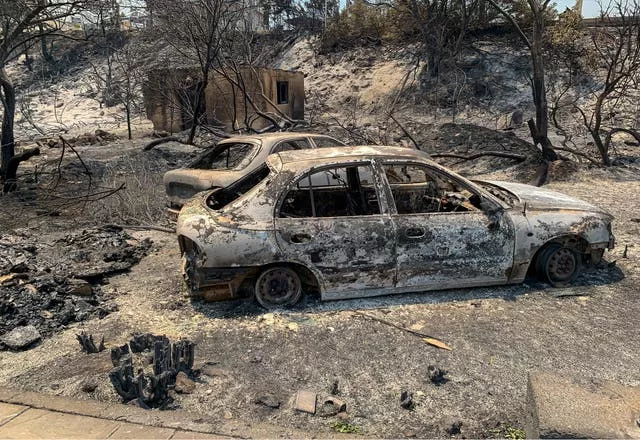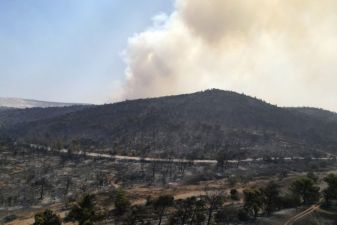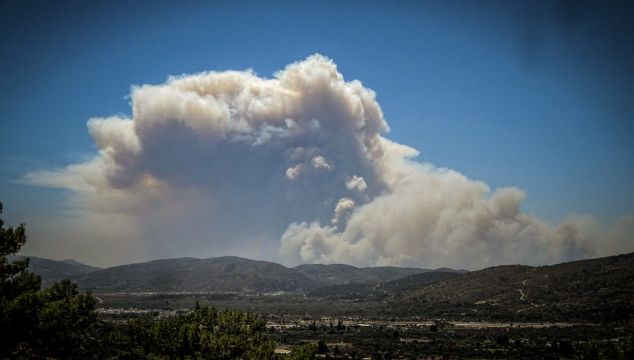Tourists planning trips to the Mediterranean should see the Greek wildfires as a “big, big warning”, with climate change set to fuel more severe blazes in future, one of the UK’s leading climate scientists has said.
Sir David King, former UK chief scientific adviser and chairman of the Climate Crisis Advisory Group, said many people will die from heat stress because of the relentless heatwaves over southern Europe, where millions of Britons travel on holiday each year.
Speaking to the PA news agency from another Greek island, Sir David warned tourists to take care in the heat, adding that he has “no doubt” that the extreme temperatures are due to melting ice in the Arctic caused by greenhouse gases emitted by people heating the Earth’s atmosphere.

He said: “If you are in one of these very warm areas and you haven’t got air conditioning indoors you could suffer terribly – many people will die from heat stress.
“You must have moving air – it makes an enormous difference. If there’s a large fan, preferentially a roof fan, that is moving the air in the room… because moving the air helps to remove the perspiration from your body and keeps you cooler.
“I wouldn’t be too dogmatic about advice but, certainly, there’s a big, big warning this summer. To anyone planning to go overseas for the summer, ‘Be very careful’ would be my advice.”
Nearly 20,000 people, many of them tourists, are being evacuated from the island of Rhodes as large fires sweep down from the mountains towards the south-western coastal resort towns.

Meanwhile, on Corfu, around 2,000 people fled over the weekend from a fire which the authorities suggested may have started because of arson.
Helped by firefighters and other emergency services from across the European Union, Greek authorities have also been evacuating people north of Athens as they struggle to contain the spread of one of the largest fires ever seen on the mainland.
Many wildfires around the world are started by people, whether on purpose or by accident, but rising temperatures and drier conditions exacerbated by climate change mean that, once ignited, fires can spread with lethal speed and ferocity.
Sir David said: “There’s no coincidence at all that climate change has driven these higher temperatures, and the higher temperatures are causing the fires that are spreading.
“The only way to tackle this is deep and rapid emissions reductions. In terms of greenhouse gases, we have virtually doubled the amount of greenhouse gases compared to the pre-industrial level.”
It is estimated that there are up to 10,000 Britons on Rhodes, many of whom have had to flee and sleep on the floors of schools, airports and sports centres.
Airlines have begun to repatriate their customers back to the UK, with flights returning over the weekend.

The Foreign Office said it has sent five of its staff and four British Red Cross responders to Rhodes to help support British nationals.
A spokesman said: “They will be based at Rhodes International Airport to assist with travel documents and liaise with Greek authorities and travel operators on the ground.
“British nationals in Rhodes should contact their travel operator in the first instance for any queries regarding the rescheduling of flights and continue to check our updated gov.uk travel advice for information.”







